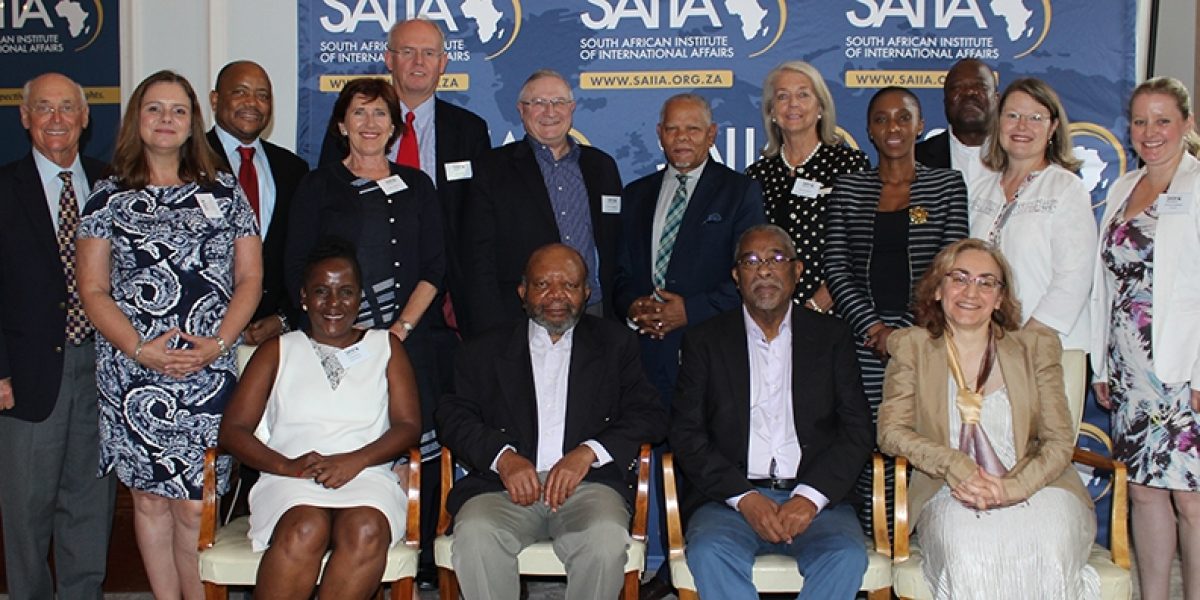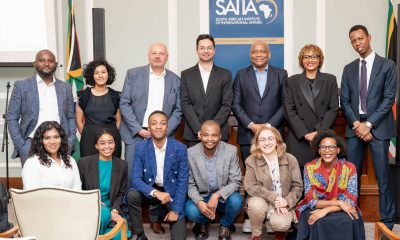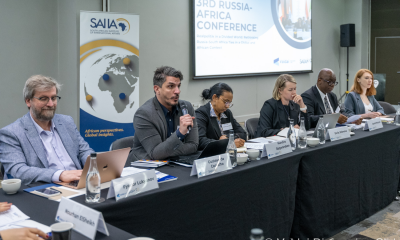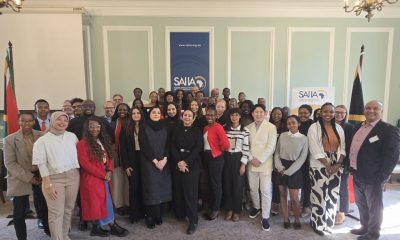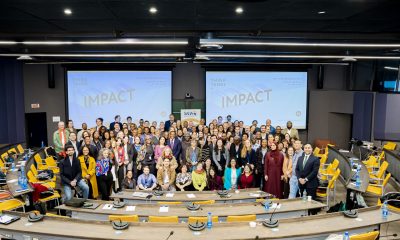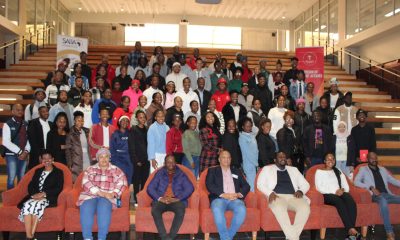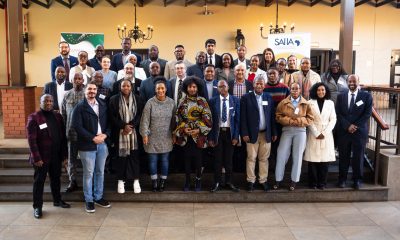Here is the full text of his speech:
Nearly a quarter of a century ago, we were all celebrating the miracle of South Africa’s rebirth as an inclusive, democratic and constitutional state that emerged out of dialogue and not war. That euphoria seemed short-lived as corruption and disillusionment began spreading by the middle of the second decade.
At the National Council last year I asked the question whether our political leadership could rise above the fray and rediscover its moral compass. In the ensuing months as the media landscape was inundated with a constant stream of allegations about state capture, ratings downgrades and the deepening malaise among state-owned enterprises, the prognosis was dire. But the darkest hour is just before the dawn.
South Africa entered 2018 with a renewed sense of direction and commitment to the values espoused in our constitution. We have taken tentative steps to recover the imperative of democratic accountability and good governance but the road will be long and we must be prepared to deal with setbacks decisively and with conviction.
SAIIA is an institute of international affairs in a country which has prided itself on its globalist outlook and engagement, and which embraced an activist, value-driven foreign policy from the start. Yet, today I want to focus on what our key domestic governance and economic priorities should be. Our domestic fortunes determine our international influence. In the last five years Nigeria has overtaken us economically, while Ghana and other countries in the region are regarded as the preeminent examples of good political governance.
We have lost much ground internationally over the last decade as corruption and mismanagement permeated certain institutions of the state from the criminal justice system, to cabinet appointments and the state-owned entities that were supposed to be drivers of a developmental state. Recent allegations of corporate malfeasance have also cast a shadow over South Africa’s corporate governance.
Eskom, named the power company of the year at the Financial Times Global Energy Awards in 2001, became a hollowed-out shell of its former self, while police crime intelligence and elements of the prosecuting authority seemed to have pursued agendas different to their constitutional mandate. In the noise, it seemed that only the judiciary and the Public Protector could stand between us and the precipice.
Under new ANC leadership, South Africa has the opportunity to realise a renaissance for both its citizens and its international credibility. To do that, the country’s leadership needs to recapture state integrity and communicate policy certainty.
This means sending a powerful signal about the primacy of the rule of law. Because the ‘state capture’ project was so effective at strangling the institutions that were designed to protect the rule of law, restoring confidence in those institutions must be paramount.
Critical institutions that should be prioritised are the National Directorate of Public Prosecutions, the security apparatus (including the Hawks and Police Intelligence), and the revenue service. In addition, state-owned enterprises have not only been the vehicles for the corruption that has characterised the South African state in the last few years; their incompetent and corrupt management and governance for the enrichment of the few, have eroded their potential role as enablers of economic development.
An economy that continues to be characterised by poverty, inequality and unemployment cannot afford to have the institutional fabric upon which it relies destroyed. In the last few days we have witnessed positive moves to clean Eskom but we cannot afford to lose the momentum.
The restructuring of Eskom potentially into three component parts as the ANC had proposed but then withdrew – with a separate independent generator, transmitter and distributor should be part of the next phase of reconstruction of what used to be the jewel in the SOE crown. Certainty around South Africa’s renewable energy policy is crucial and thus signing off immediately on the fourth bidding window’s contracts for the Renewable Energy Independent Power Producers Programme. This would also restore confidence among small business operators in the renewable energy space (and probably elsewhere).
The other sector which continues to be a significant contributor to the economy is mining, especially as it can be a powerful lever for upstream manufacturing. Yet, trust between the mining industry and the state has been broken. Recovering that trust is not just about rebuilding an industry that was at the heart of South Africa’s economy for so long; it potentially holds out the promise for new industries in the age of technology.
South Africa has among the single biggest deposits of chrome and manganese in the world. These are key minerals for the Fourth Industrial Revolution, especially the transport and energy revolutions. Both are required for electric vehicles and wind turbines. Investments in exploration and production are necessary, but these can’t happen without institutional credibility on the legislative and policy front.
Restoring confidence, rebuilding the social compact, ensuring accountability are the necessary components to create an enabling environment not only for foreign investors but also for domestic businesses both big and small. An enabling environment for private sector activity creates jobs, builds up state coffers and enables welfare redistribution through the fiscus to the poorest of the poor, those who are the lost generation and for whom employment prospects are limited, if not absent.
South Africa built up a phenomenal social security edifice in the post-1994 years, only to see it severely threatened by poor governance and arrogance. Persistent inequality requires a redistributive element in the fiscus, but a growing economy is necessary for that.
Being open for business, however, is meaningless in the long run unless there is a laser-like focus on our broken education system. A good start is investment in early childhood development – the economic evidence is overwhelming that the long-run returns on allocating smart capital into this area are well beyond any other potential investment. The youth unemployment problem will not disappear unless we also think through what it means to educate for the fourth industrial revolution.
For more than two decades SAIIA has been doing work with youth because it recognised the importance of imparting to high school learners the skills that will be essential regardless of the profession they choose to go into. These are the skills of critical thinking, team work, presentation and public speaking. At the same time it has also sought to cultivate young citizens with a heightened sense of public service and commitment to society.
South Africa is a small country, both economically and demographically, in global terms. Yet in its sub-region it is the pre-eminent economic leader. With Zimbabwe’s transition to new leadership, albeit flawed, and the new president’s associated attempts to revive that economy, there are many opportunities to reignite a dual engine of growth that is linked not to natural resources but to value added products.
South Africa has aspired to playing in the big league, with the most notable success being its membership of the BRICS. However, membership itself is not a measure of success; rather a key measure of effectiveness must be the tangible and sustainable benefits that a country derives from such interactions. This element cannot be driven only by outdated ideological considerations and simplistic divisions of the world that hark back to the Cold War.
As the domestic order returns to normality, we need a new white paper that is the outcome of a review of the ‘why’, the ‘how’ and the ‘what’ of our international engagements in a very changed geopolitical, economic and digital world. Its objective should be for us to re-assert our place as an influential actor in global forums and to jumpstart a dynamic, more effective and integrated economic trade and investment strategy driven by joined up diplomacy-business outreach.
A future of full employment, social justice, international credibility and 21st century policies can be a reality provided there is an appreciation that partnerships among the various social actors is the best route – the state, business, the unions and social movements, NGOs, and academic institutions and think tanks.
SAIIA stands ready to do its bit in a new social compact.

